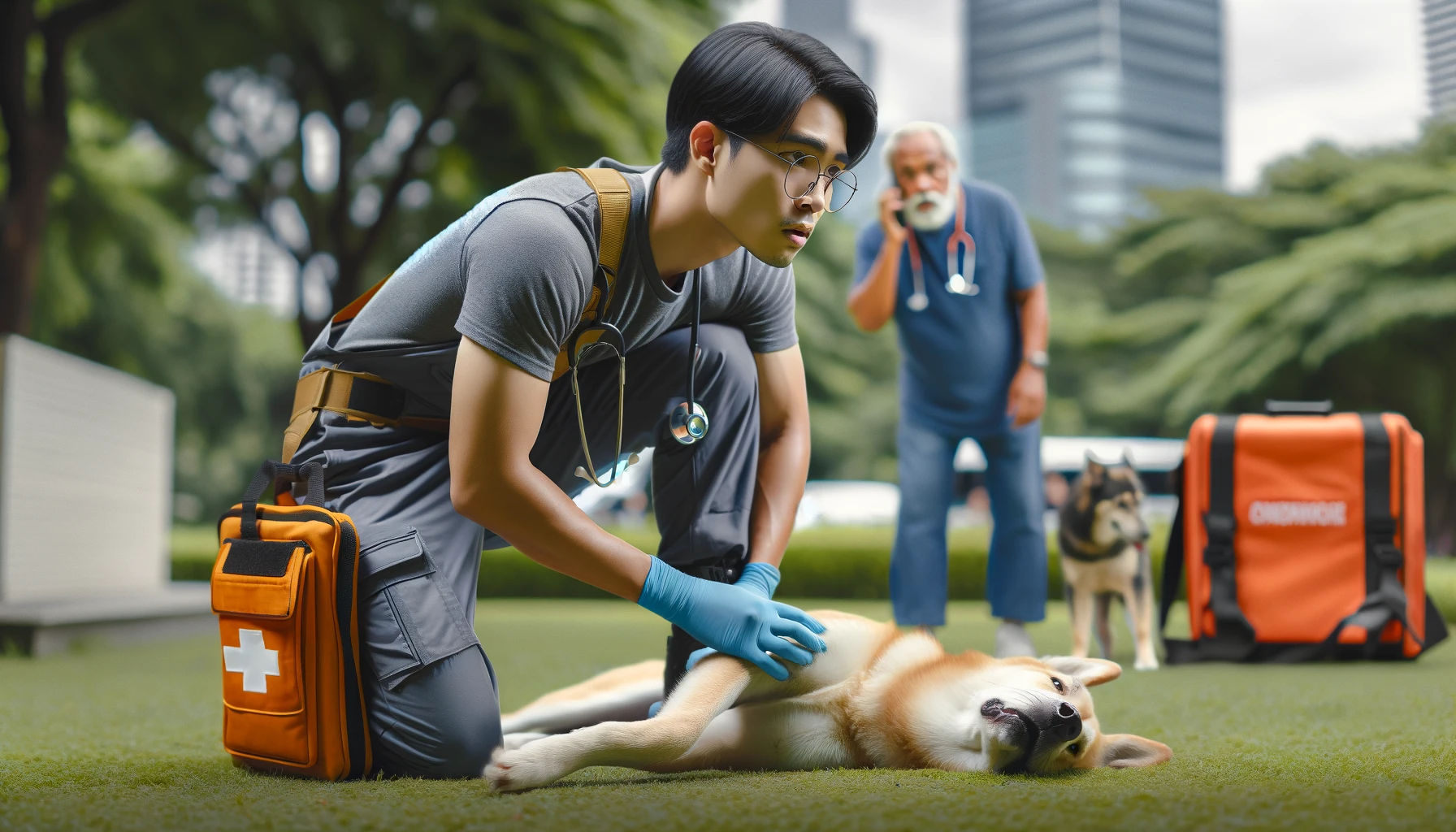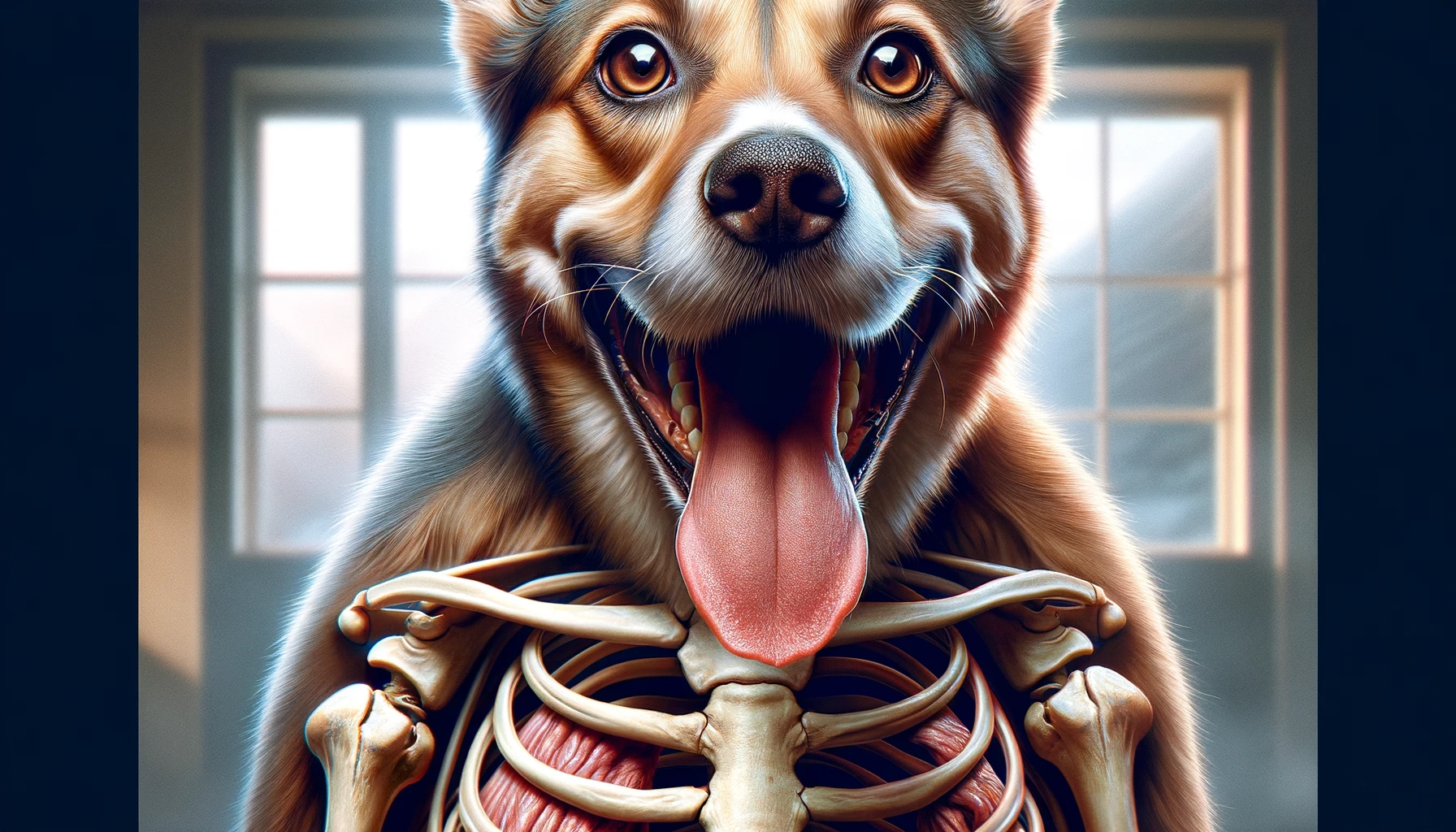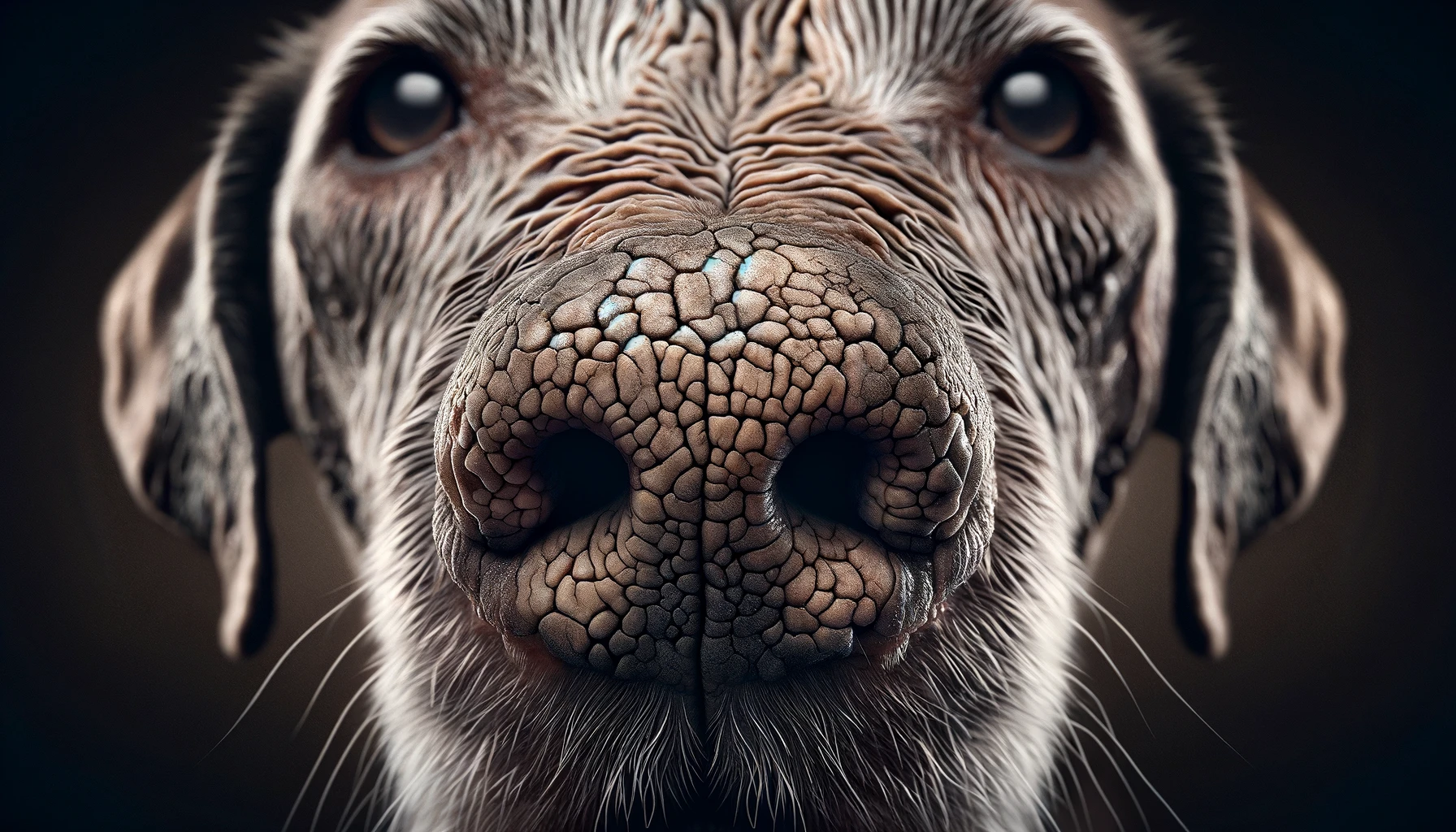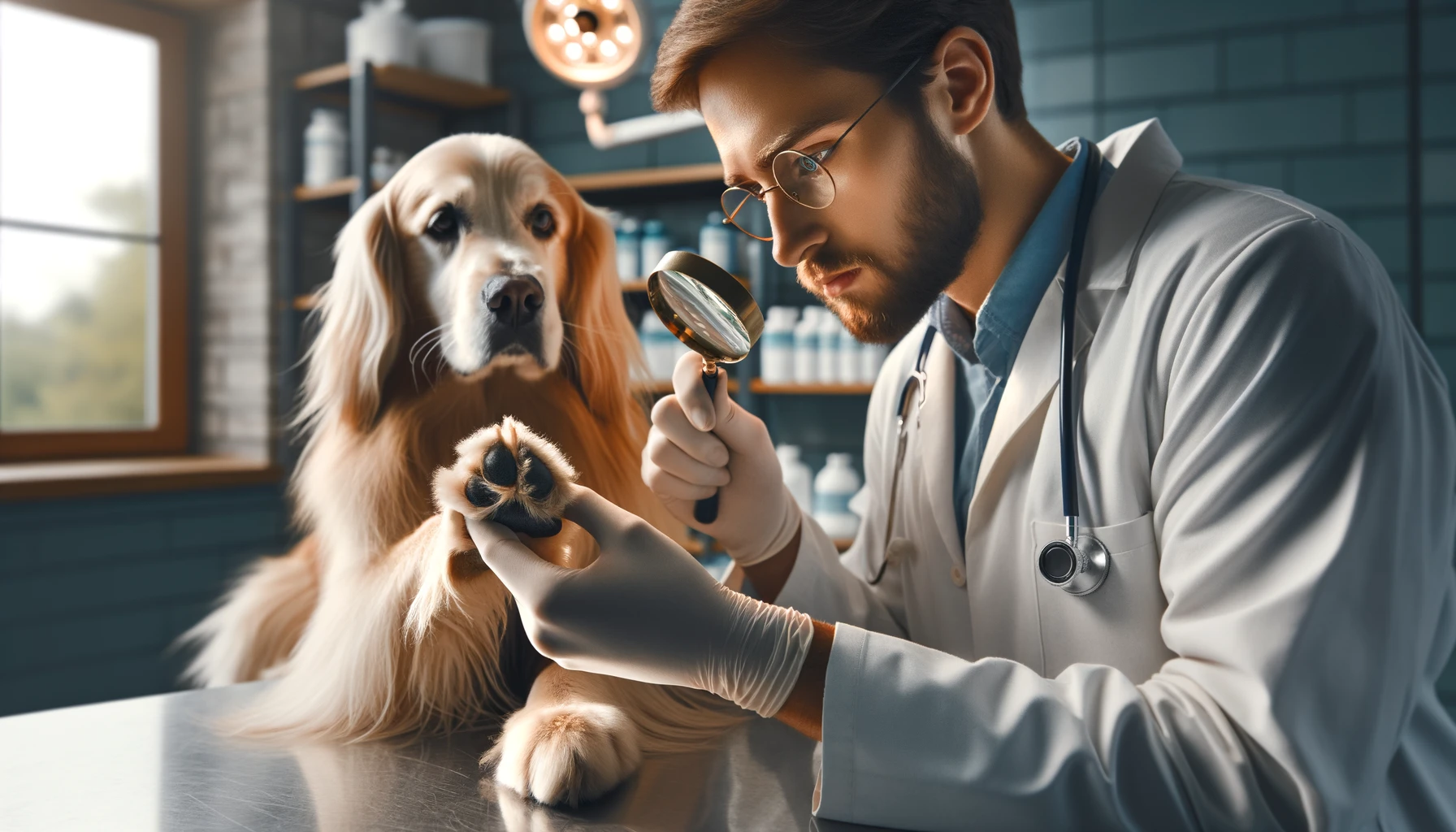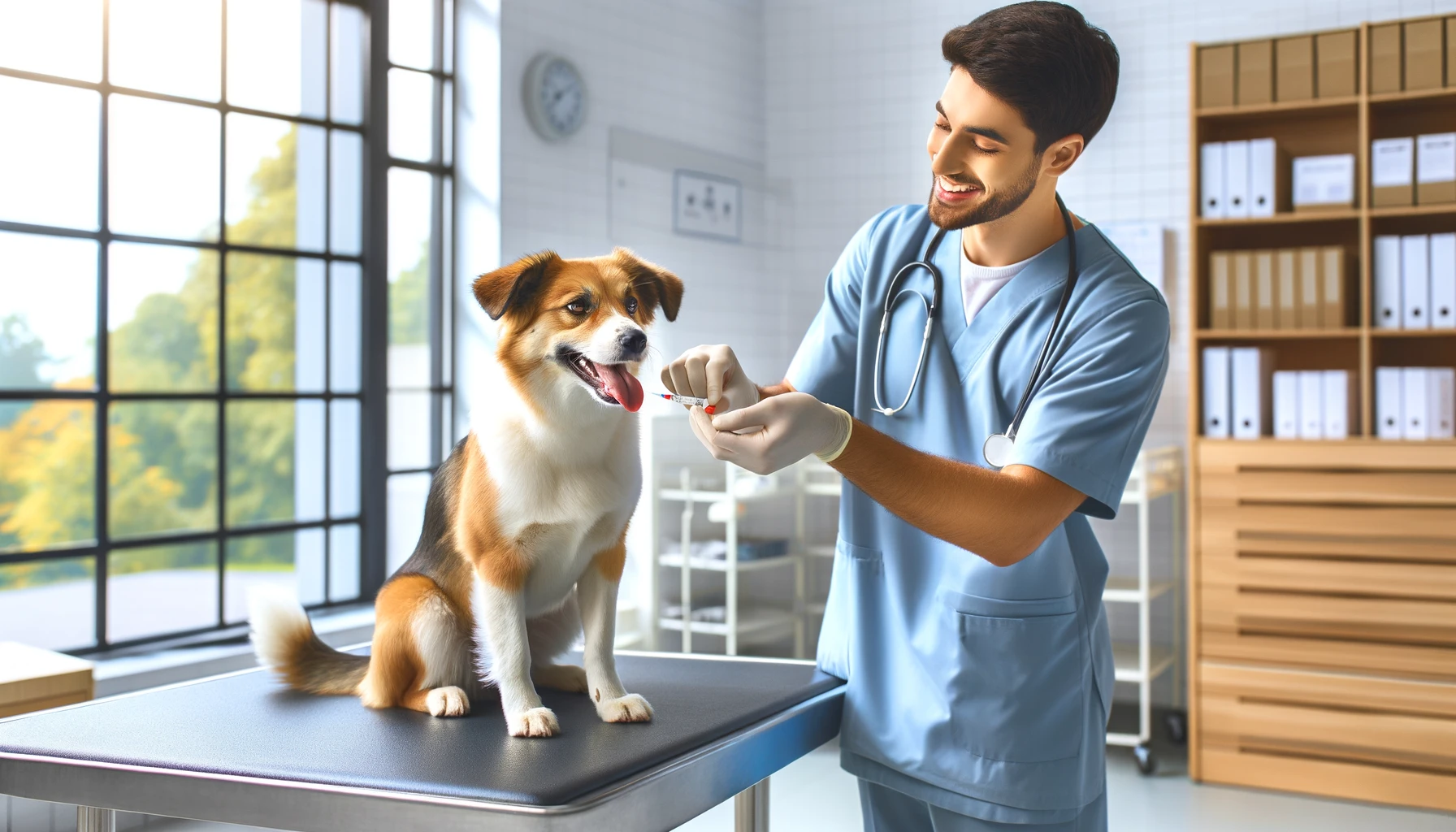Looking to keep your furry friend healthy and strong? Make sure they're getting the right nutrition! In this article, we'll guide you through the top 9 nutritional must-haves for a healthy dog.
From a protein-rich diet to essential vitamins and minerals, we'll cover it all.
Learn how healthy fats, high-quality carbohydrates, and adequate water intake can boost your dog's energy and digestion.
Plus, discover the importance of antioxidants, omega-3 fatty acids, probiotics, and balanced nutrition for their overall wellbeing.
Key Takeaways
- Protein-rich diet is essential for growth, repair, and maintenance of tissues and organs.
- Essential vitamins and minerals from meat, fish, fruits, vegetables, and whole grains are necessary for bodily functions and well-being.
- Adequate water intake is important for hydration and proper bodily functions.
- Balanced intake of fats and carbohydrates is necessary for energy and overall health.
Protein-Rich Diet
Feed your dog a high-quality protein-rich diet to ensure their overall health and well-being. Protein is an essential nutrient for dogs, as it plays a vital role in their growth, repair, and maintenance of tissues and organs. It's important to provide your furry friend with the right amount of protein from various sources to meet their protein requirements.
When it comes to protein sources for dogs, there are several options to choose from. Animal-based proteins, such as chicken, beef, fish, and eggs, are considered highly digestible and provide all the essential amino acids that dogs need. Plant-based proteins, such as soy, lentils, and peas, can also be included in their diet, but it's important to ensure that these sources are balanced with animal proteins to meet their nutritional needs.
The amount of protein your dog needs will depend on several factors, including their age, size, activity level, and overall health. Puppies and active dogs generally require more protein than senior or less active dogs. Consulting with your veterinarian can help determine the appropriate protein requirements for your dog based on their specific needs.
Essential Vitamins and Minerals
Now let's talk about the essential vitamins and minerals that your dog needs for optimal health.
These nutrients are crucial for your dog's overall well-being and play a vital role in their bodily functions.
Key Nutrient Sources
To ensure optimal health for your dog, it's essential to provide them with a balanced diet that includes key nutrient sources such as essential vitamins and minerals. These nutrients play a vital role in your dog's overall well-being and can help prevent nutrient deficiencies.
Here are three key nutrient sources that you should include in your dog's diet:
- Meat and Fish: These protein-rich sources aren't only essential for building strong muscles but also provide important minerals like iron and zinc.
- Fruits and Vegetables: These natural sources of vitamins and minerals are packed with antioxidants, fiber, and phytonutrients that promote a healthy immune system and aid digestion.
- Whole Grains: These complex carbohydrates provide energy and are a good source of B vitamins, iron, and fiber.
Health Benefits Explained
Include a variety of foods rich in essential vitamins and minerals to ensure your dog receives the necessary nutrients for optimal health and well-being. A balanced diet plays a crucial role in supporting your dog's overall health.
Essential vitamins and minerals are vital for various bodily functions, including energy production, immune system support, and bone health. Vitamin A promotes healthy vision, while vitamin C boosts the immune system. B vitamins are essential for metabolism and brain function. Calcium and phosphorus are crucial for strong bones and teeth. Iron helps transport oxygen throughout the body.
Incorporating these nutrients into your dog's diet can help prevent deficiencies and promote a healthy, active lifestyle. Coupled with regular exercise, a balanced diet rich in essential vitamins and minerals can enhance your dog's overall health and well-being.
Nutrient Deficiencies Prevention
Ensure your dog receives the necessary vitamins and minerals to prevent nutrient deficiencies and maintain optimal health. To prevent deficiencies, it's important to provide your dog with nutrient-rich foods.
Here are three essential vitamins and minerals that play a crucial role in your dog's health:
- Vitamin A: This vitamin is important for your dog's vision, immune system, and skin health. It can be found in foods like liver, carrots, and sweet potatoes.
- Calcium: Calcium is vital for strong bones and teeth, as well as proper muscle function. Sources of calcium include dairy products, leafy greens, and bone meal.
- Omega-3 fatty acids: These essential fatty acids support your dog's immune system, promote a healthy coat and skin, and reduce inflammation. Fish oil, flaxseed, and chia seeds are excellent sources of omega-3 fatty acids.
Healthy Fats for Optimal Energy
Give your dog the energy boost they need by incorporating healthy fats into their diet. Healthy fats are essential for optimal energy levels in dogs. They provide a concentrated source of energy that's easily metabolized by their bodies.
Additionally, healthy fats offer a range of benefits for your furry friend. One of the key benefits of healthy fats is their role in promoting a healthy coat and skin. Omega-3 fatty acids, found in fish oil and flaxseed, can help reduce dryness and itching, giving your dog a shiny and lustrous coat. These fats also have anti-inflammatory properties, which can alleviate joint pain and improve mobility, especially in older dogs.
There are different types of healthy fats that you can incorporate into your dog's diet. Animal-based fats like chicken fat and fish oil are rich in omega-3 fatty acids. Plant-based fats, such as coconut oil and olive oil, are also beneficial and provide a source of medium-chain triglycerides that can support brain function and digestion.
Remember, when adding healthy fats to your dog's diet, moderation is key. Consult your veterinarian for guidance on the appropriate amount of fats to include in your dog's meals.
High-Quality Carbohydrates for Digestion
To support your dog's digestive health, incorporate high-quality carbohydrates into their diet. Carbohydrates are an essential source of energy for dogs and play a crucial role in maintaining a healthy digestive system. When choosing carbohydrate sources for your furry friend, opt for those that are easily digestible and provide a steady release of energy.
Here are three sub-lists to help you understand the importance of high-quality carbohydrates for your dog's digestion:
- Whole grains: Whole grains such as brown rice, quinoa, and oats are rich in fiber, which aids in digestion and helps regulate bowel movements. They also provide a slow and steady release of energy, keeping your dog satisfied throughout the day.
- Vegetables: Incorporating vegetables like sweet potatoes, carrots, and peas into your dog's diet can provide additional fiber and essential nutrients. These vegetables aren't only easy to digest but also contribute to a healthy digestive system.
- Legumes: Lentils, chickpeas, and beans are excellent sources of carbohydrates that are gentle on your dog's stomach. They're high in fiber, promoting good digestion, and can also provide a good amount of protein.
Adequate Water Intake for Hydration
To keep your dog healthy and hydrated, it's crucial to ensure they've an adequate intake of water.
Staying hydrated offers numerous benefits, such as maintaining proper organ function, regulating body temperature, and aiding digestion.
When placing their water bowl, make sure it's easily accessible and in a quiet area to encourage regular hydration throughout the day.
Benefits of Staying Hydrated
Staying hydrated offers numerous benefits for your dog's overall health and well-being. Adequate water intake is crucial for preventing dehydration and ensuring optimal bodily functions.
Here are the key benefits of staying hydrated for your furry friend:
- Improved digestion: Proper hydration helps maintain a healthy digestive system, preventing issues like constipation and bloating.
- Temperature regulation: Water helps regulate body temperature, especially during hot weather or physical activity, preventing overheating and heat stroke.
- Joint lubrication: Sufficient hydration supports the lubrication of your dog's joints, reducing the risk of joint pain and stiffness.
By encouraging regular water consumption, you can enhance your dog's overall health and prevent the potentially harmful effects of dehydration.
Remember to always provide access to clean and fresh water for your four-legged companion.
Water Bowl Placement Tips
For optimal hydration, place your dog's water bowl in a convenient and easily accessible location. Bowl placement plays a crucial role in ensuring that your dog drinks enough water throughout the day.
Choose a spot that's away from their food bowl and where they spend most of their time. This will encourage them to drink water regularly. Avoid placing the bowl in high traffic areas or near noisy appliances, as it may cause your dog to feel anxious or uncomfortable while drinking.
Additionally, make sure the water bowl is clean and filled with fresh water at all times.
Importance of Regular Hydration
Make sure you continue encouraging your dog to stay hydrated by providing them with an adequate water intake. Regular hydration is essential for your dog's overall health and well-being. Here are a few important points to keep in mind:
- Water bowl maintenance: Ensure that your dog's water bowl is clean and fresh at all times. Wash it regularly to prevent the buildup of bacteria or algae.
- Signs of dehydration: It's crucial to be aware of the signs of dehydration in dogs. These may include excessive panting, dry gums, loss of appetite, and lethargy. If you notice any of these symptoms, it's important to seek veterinary attention promptly.
- Encouraging water intake: Make sure your dog always has access to fresh water. Place water bowls in easily accessible areas throughout your home and ensure they're replenished regularly. Additionally, consider adding more water to your dog's food or providing them with ice cubes as a fun way to increase their water intake.
Antioxidants for Immune Support
To keep your dog's immune system strong, it's important to regularly include antioxidants in their diet. Antioxidants are compounds that help protect the body's cells from damage caused by free radicals, which are unstable molecules that can harm cells and contribute to various diseases. By incorporating antioxidant-rich foods into your dog's diet, you can provide them with immune system boosters that promote overall health and well-being.
Some antioxidant-rich foods that you can include in your dog's diet are blueberries, spinach, carrots, and sweet potatoes. These foods aren't only packed with antioxidants but also provide essential vitamins and minerals. Blueberries, for example, are high in vitamin C and fiber, while spinach is a good source of vitamin A and iron. Carrots and sweet potatoes are rich in beta-carotene, which is converted into vitamin A in the body.
In addition to these fruits and vegetables, you can also consider adding other antioxidant sources such as fish oil or green tea to your dog's diet. Fish oil is rich in omega-3 fatty acids, which have anti-inflammatory properties and can help support a healthy immune system. Green tea contains catechins, a type of antioxidant that has been shown to have immune-boosting effects.
Omega-3 Fatty Acids for Coat and Skin Health
Incorporate omega-3 fatty acids into your dog's diet for optimal coat and skin health. Omega-3 fatty acids are essential for maintaining a healthy coat and promoting skin health in dogs. Here are three reasons why they're important:
- Improved Coat Quality: Omega-3 fatty acids help to nourish your dog's skin from within, reducing dryness and itchiness. This leads to a healthier, shinier coat that's less prone to shedding and matting.
- Reduced Inflammation: Omega-3 fatty acids have anti-inflammatory properties, which can help alleviate skin conditions such as allergies, hot spots, and dermatitis. By reducing inflammation, they contribute to a healthier and more comfortable skin.
- Enhanced Skin Barrier Function: Omega-3 fatty acids play a crucial role in maintaining the integrity of your dog's skin barrier. A strong skin barrier is essential for protecting against environmental allergens, bacteria, and other irritants that can cause skin issues.
To ensure your dog gets enough omega-3 fatty acids, consider adding sources such as fish oil or flaxseed oil to their diet. Consult with your veterinarian to determine the appropriate dosage for your dog's specific needs.
Probiotics for a Balanced Gut
Continue supporting your dog's overall health by incorporating probiotics for a balanced gut. Probiotics, which are beneficial bacteria, offer a range of benefits for your dog's digestive system and overall well-being. By improving gut health, probiotics can help regulate digestion, boost nutrient absorption, and strengthen the immune system.
One of the main probiotic benefits is the promotion of a healthy gut environment. Probiotics work by colonizing the intestines and inhibiting the growth of harmful bacteria. This creates a balanced gut flora, which is essential for optimal digestion and nutrient absorption. When your dog's gut is in good health, it can better break down food, extract nutrients, and eliminate waste.
Additionally, probiotics can help alleviate digestive issues such as diarrhea, constipation, and gas. They can also reduce the risk of gastrointestinal infections and improve the overall function of the digestive system. By supporting a balanced gut, probiotics contribute to the overall health and well-being of your dog.
To incorporate probiotics into your dog's diet, you can choose from a variety of options such as probiotic supplements, specially formulated dog foods, or natural sources like yogurt and kefir. Remember to consult with your veterinarian to determine the best probiotic product and dosage for your furry friend.
Balanced and Complete Nutrition for Overall Wellbeing
Improve your dog's overall wellbeing by ensuring they receive balanced and complete nutrition. A balanced diet is essential for your dog's health, as it provides the necessary nutrients for their body to function properly. Here are three key benefits of a balanced and complete diet for your furry friend:
- Optimal Nutrient Absorption: A balanced diet ensures that your dog can absorb all the essential nutrients they need. This means that their body can efficiently metabolize and utilize the vitamins, minerals, proteins, and fats from their food, promoting overall wellbeing.
- Maintaining a Healthy Weight: A balanced diet helps your dog maintain a healthy weight, which is crucial for their overall wellbeing. By providing the right balance of nutrients and portion control, you can prevent obesity and related health issues.
- Improved Energy and Vitality: When your dog receives all the necessary nutrients, their energy levels increase, and they feel more vibrant. A balanced diet supports their immune system, strengthens their muscles, and enhances their coat's health, resulting in a happier and more active companion.
Frequently Asked Questions
How Much Protein Should I Be Feeding My Dog Each Day?
You should be feeding your dog the right amount of protein each day. To calculate this, consider your dog's weight, activity level, and any specific dietary needs. Meeting their protein requirements is essential for a healthy dog.
Can My Dog Get All the Essential Vitamins and Minerals They Need From Their Regular Dog Food?
Yes, your dog can get all the essential vitamins and minerals they need from their regular dog food. It is important to provide a balanced diet that includes these essential nutrients for their overall health and well-being.
Are There Any Specific Carbohydrates That Are Better for My Dog's Digestion?
For a healthy dog's digestion, there are specific carbohydrate options that can be beneficial. Including antioxidants in your dog's diet can also have positive effects.
How Much Water Should My Dog Be Drinking Each Day to Stay Properly Hydrated?
To keep your dog properly hydrated, make sure they drink enough water each day. The amount depends on factors like size and activity level. Signs of dehydration include dry gums and lethargy.
Can I Give My Dog Supplements for Antioxidants, Omega-3 Fatty Acids, and Probiotics Instead of Including Them in Their Diet?
Yes, you can give your dog supplements for antioxidants, omega-3 fatty acids, and probiotics instead of including them in their diet. However, it's important to consider the long-term effects and consult with a veterinarian.
Conclusion
In conclusion, ensuring that your dog's diet is rich in protein, essential vitamins and minerals, healthy fats, high-quality carbohydrates, and adequate water intake is crucial for their overall health and wellbeing.
Additionally, incorporating antioxidants, omega-3 fatty acids, and probiotics into their diet can provide added benefits such as immune support, improved coat and skin health, and a balanced gut.
By providing your dog with a balanced and complete nutrition plan, you can help them maintain optimal health and vitality.

